As Mumbai's top restaurants hunt for local substitutes for imported ingredients stuck at the port — thanks to the FSSAI's packaging policy — local farmers are stepping up with home-churned alternatives
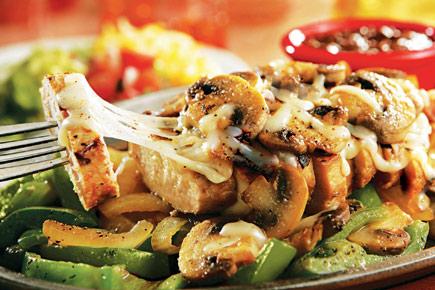
“One chef says: It’s magnifique...makes a superb tiramisu. But another will say it’s terrible,” admits Karl Kothavala about his artisanal cream cheese that invites different reactions from buyers.
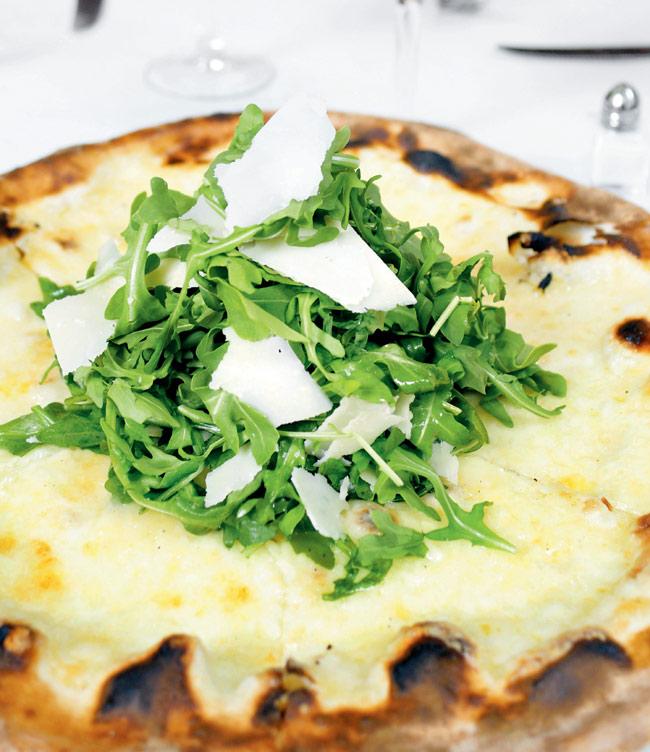 Serafina’s Pizza Bianca requires Arugula, sourced from Karnataka, Gujarat and Maharashtra
Serafina’s Pizza Bianca requires Arugula, sourced from Karnataka, Gujarat and Maharashtra
ADVERTISEMENT
Yet, Kothavala’s Say Cheez that started as a small, home-run enterprise three years ago, has been thriving, as it delivers top quality, low-cost alternatives to imported Boursin, Feta, Philadelphia and Mascarpone. “Buyers need to understand that my cheese is made from local products,” is what he tells detractors who expect him to replicate the exact taste and texture of foreign brands. Whether or not they can appreciate his point, the Food Safety and Standards Authority of India’s (FSSAI) determination to enforce its packaging policy on imports means that restaurants may have no choice but to make do with the taste differential. For local vendors, such as Kothavala, this could mean a windfall.
What’s the fuss about?
“With India’s net demand accounting for less than 0.1 per cent of their sales, it’s not worthwhile for German, Italian and French companies to change their labels — these need to be in English or Hindi now — to meet the regulations of the Food and Safety Standards Act 2006,” shares Harjeet Singh, General Manager, Operations at Global Kitchen, the company behind Chao Ban, The Irish House and NYC’s much-loved Italian restaurant, Serafina which opened at Lower Parel’s Palladium Mall in 2012. “So, we’re trying to tweak our menus, accordingly,” he adds.
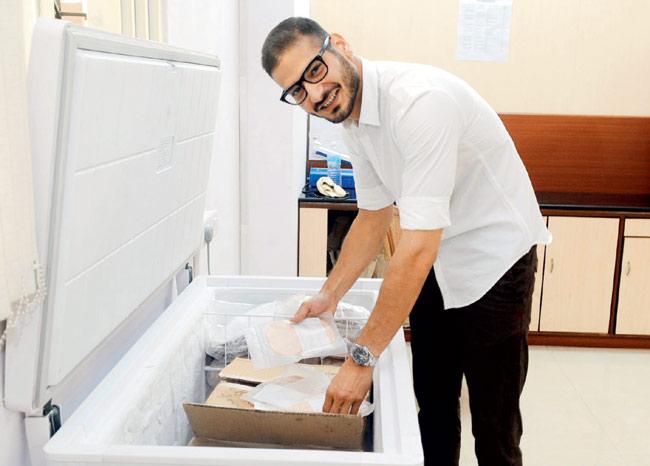
Aditya Monkar’s Monsa Products are prepared from his factory in Dahisar
While he appreciates that the FSSAI policy keeps India from becoming a dumping ground for sub-standard goods and safeguards against label-altering, Rahul Akerkar, Founder, deGustibus Hospitality, which lists European fine-dining restaurant Indigo under its umbrella, hopes the authority would take a pragmatic approach. “Manufacturers can’t be expected to alter the packaging for small boutique restaurants, for orders of say, 100 jars of foie gras for instance,” says Akerkar whose restaurant supplies have been stuck in port since September 2013.
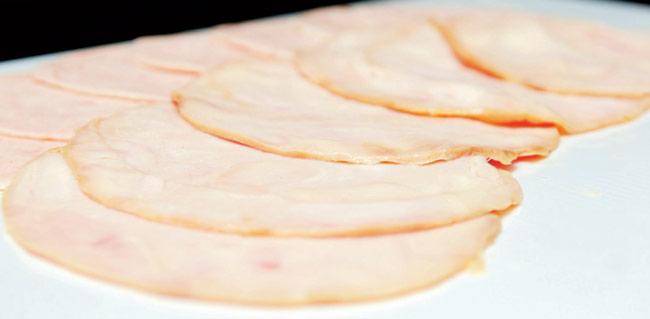
Chicken Mortadella; Plain Chicken Breast. Other products include Oven Roasted Chicken Breast
Why not switch?
For one, local artisans don’t churn enough cheese for large operations. Though Deepti Dadlani, Marketing and Communications Director, Paladium is impressed with Mansi Jasani’s Cheese Collective, she says, “No one’s doing it on a large scale so when we deal with local artisans, we deal with smaller quantities. When they tell us the product will stay for nine days, we aim to use it within two days.”
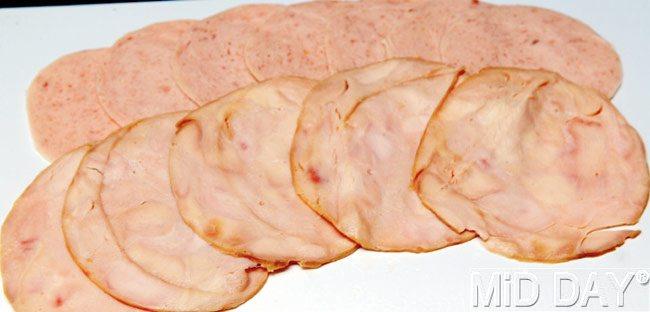
Smoked Turkey Breast and Chicken Liver Pate. Pics/Nimesh Dave
Singh cites another problem: “The taste and texture of cheese varies with the temperature it’s manufactured in, and while our experiments with local manufacturers have yielded good cheese, it doesn’t meet the requirements of an international brand like Serafina, which prides itself on being able to deliver the taste that its globetrotting patrons look for.”
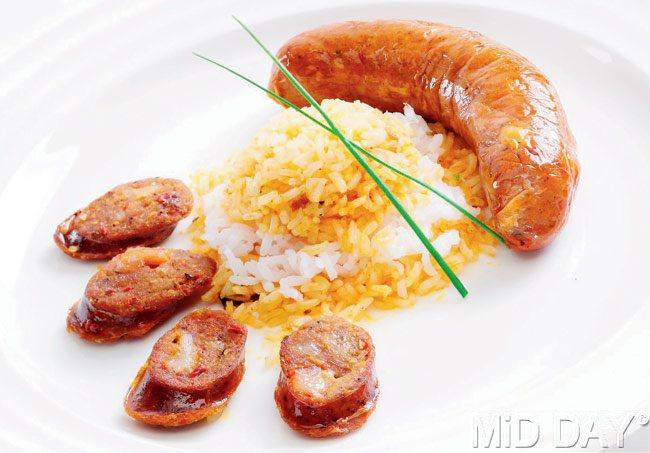
ALF’s Pork Chorizo comes close to the imported variety
Dairy doubles
With an eye on the future, Global Kitchen has therefore started working with Dairy Craft, a Delhi-based company that manufactures local versions of Italian, American, English and Dutch cheeses, “and ties up with other local manufacturers to make cheese that meets our standards,” says Singh. However, with 70 percent of their ingredients imported, the hunt for usable local substitutes has just begun.
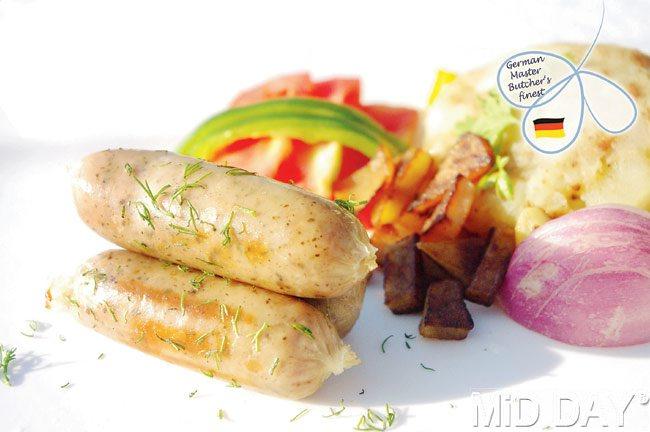
(above) Nuremberger and (below) Bratwurst still rank among Arthur Food Company’s most popular products, each generating monthly sales of 3,500 to 4,000 kg across India
Though 60 percent of their ingredients had to be imported when they opened here in 2010, two years of research and development have delivered the results American restaurant chain Chili’s Grill & Bar hoped for. Abhijeet Gomare, culinary contact for the group tells us, “Our Monterey Jack Cheese is tailor-made by Gowardhan Dairies and our Cheddar — the variety we use must be precisely salted and have a specific pungency — is manufactured by Dynamix.”
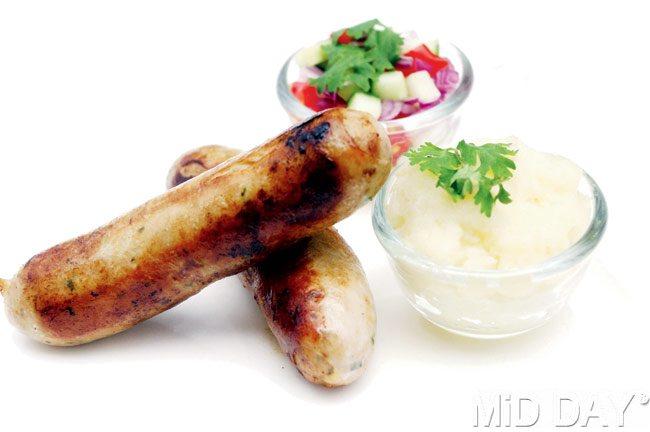
Chef Krishna Theple from Mediterranean restaurant, Otto Infinito, has also switched from Bocconcini Mozzarella, to, “fresh mozzarella from Goloka Farms in Gujarat, and from Normandy-made President butter to Dlecta unsalted butter.” The restaurant has also started using local tenderloin instead of imported meat.
Bratwurst in Bangalore
His search for local alternatives to imported meat led Rajeev Arora, executive chef of continental restaurant, Levo (Andheri), to Arthur Food Company, Bangalore, an enterprise started by Dubai and Germany based, Arthur Maurer who recognised a need for local Indian alternatives to sought-after imported meat in 2011.
Maurer brought in a German master butcher to use Indian pork with German spices and casings and create authentic German sausages. He started with Garlic Krakauer and then introduced marjoram-flavoured Nuremberger, Bratwurst and Weisswurst (an Oktoberfest favourite).
Today, with a presence in 12 cities, AFC markets over 50 products, including a Bavarian meat loaf to five-star and four-star hotels, prominent European restaurants and even consulates and embassies. Bratwurst and Nuremberger still rank among their most popular products, each generating monthly sales of 3,500 to 4,000 kg across India.
A pig concern
But, Zubin Poonawala, National Sales Manager, AFC, also admits to a dire shortage of local pork, “especially pork belly,” which comprises 70 per cent of his company’s requirement. “We only use three cuts of pork: 70 percent belly; 15 percent shoulder and 15 percent hind leg,” he says. That Rahul Akerkar will only tell us that he gets his pork from “a chap in South India,” and refuses to divulge more details about his source, offers more proof of the scarcity of the product.
Ravi Punjabi, Otto Infinito’s meat supplier and one of the people Serafina contacted to help source local equivalents for ingredients, predicts a boom in the demand for pork-alternatives. Punjabi’s four-year-old company, Percept, distributes Allana Group’s buffalo meat, Gadre Marine Exports’ seafood and products of Monsa, which, Punjabi shares, “manufactures smoked and non-smoked versions of turkey and chicken salami, by using foreign know-how but Indian materials.”
The year-and-a-half-old company formed by Aditya Monkar with Frenchman Wissam Salloum to create a, “one hundred per cent Indian product with a European taste,” already distributes 1,000 kg of poultry-salami per month.
Travel’s a hot potato
While chefs globally, prefer to use locally-grown fruits and vegetables, crippled transportation infrastructure makes imports more desirable here. Sharing his experience of sourcing Portobello mushrooms from Pune, Rahul Akerkar, says, “I was happy with the product, but after a while, we started getting broken chunks.” A discussion with the supplier revealed that transporters were destroying mushrooms by tossing them into the truck recklessly.
Akerkar offers another example: “Across the globe, avocado is shipped when it just starts to ripen, in protective thermocol or cardboard, because it bruises easily. Because we don’t have good transport facilities, farmers pick the fruit before it ripens (so it’s firm) and then, rather than ripen, it rots, as it has to start ripening on the tree.”
“Transport facilities are as critical for meat products,” says, Peter Mawiong, founding partner, Alf Farms, whose factory is in Shahapur on the Mumbai-Nashik highway. “We have our own freezer vehicles, to ensure there’s no temperature abuse at storage, retail or end user points,” he stresses.
Though Singh is satisfied with the Malta oranges that Serafina sources from Bangalore’s farmers; they source Aragula from Gujarat, Karnataka and Maharashtra when there’s a supply crunch, because, “If Aragula is kept for for over a day or two, or if it isn’t transported properly, it turns yellow and wilts; we’ve had to reject many lots because of the condition they arrived in.”
Go the local way
Until these supply issues are resolved, chefs like The White Owl’s Kshama Prabhu must limit their menus to what’s available. “Some cheeses come from Kodaikanal or Bangalore (she also lists Kothavala as a supplier of Mascarpone),” She adds, “Chorizo sausages are from Alf Farms, whose products are close to the imported variety."
Though Akerkar offers patrons exotic food, “on special menus, when such items become available,” he won’t base his regular menu on imported goods as, “that would be expensive and maintenance and sustenance would be questionable.” Global Kitchen is grasping this now; Serafina had to drop its Truffle Pizza (a signature specialty), from its Indian menu because importers can’t get their stocks of Truffle cleared. Akerkar sympathises. “An inconsistent supply chain is one of the reasons why big F&B names have steered clear of the Indian market.”
 Subscribe today by clicking the link and stay updated with the latest news!" Click here!
Subscribe today by clicking the link and stay updated with the latest news!" Click here!







